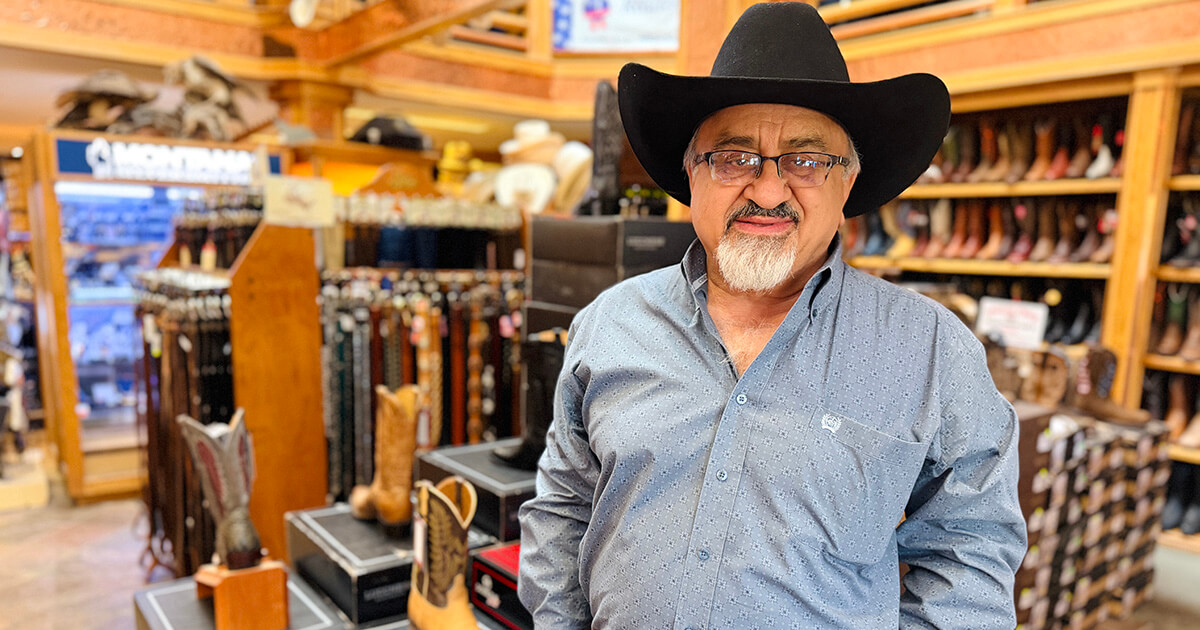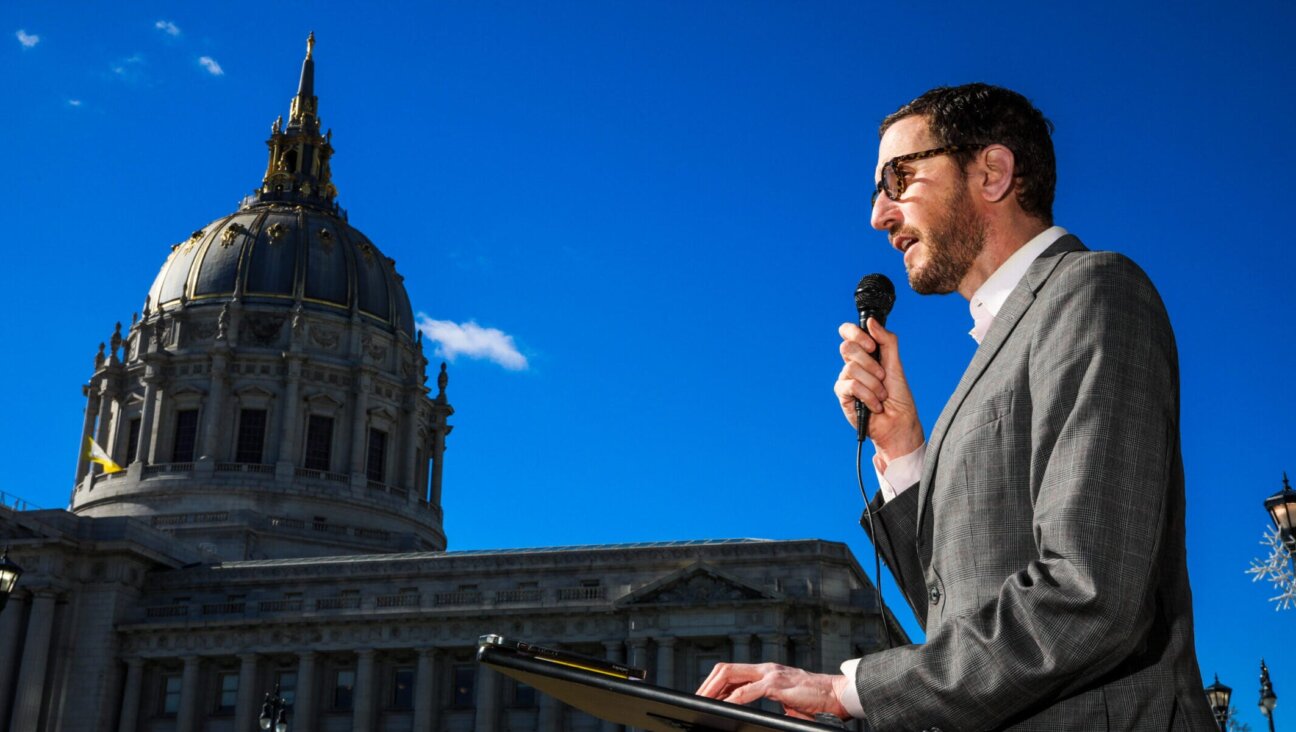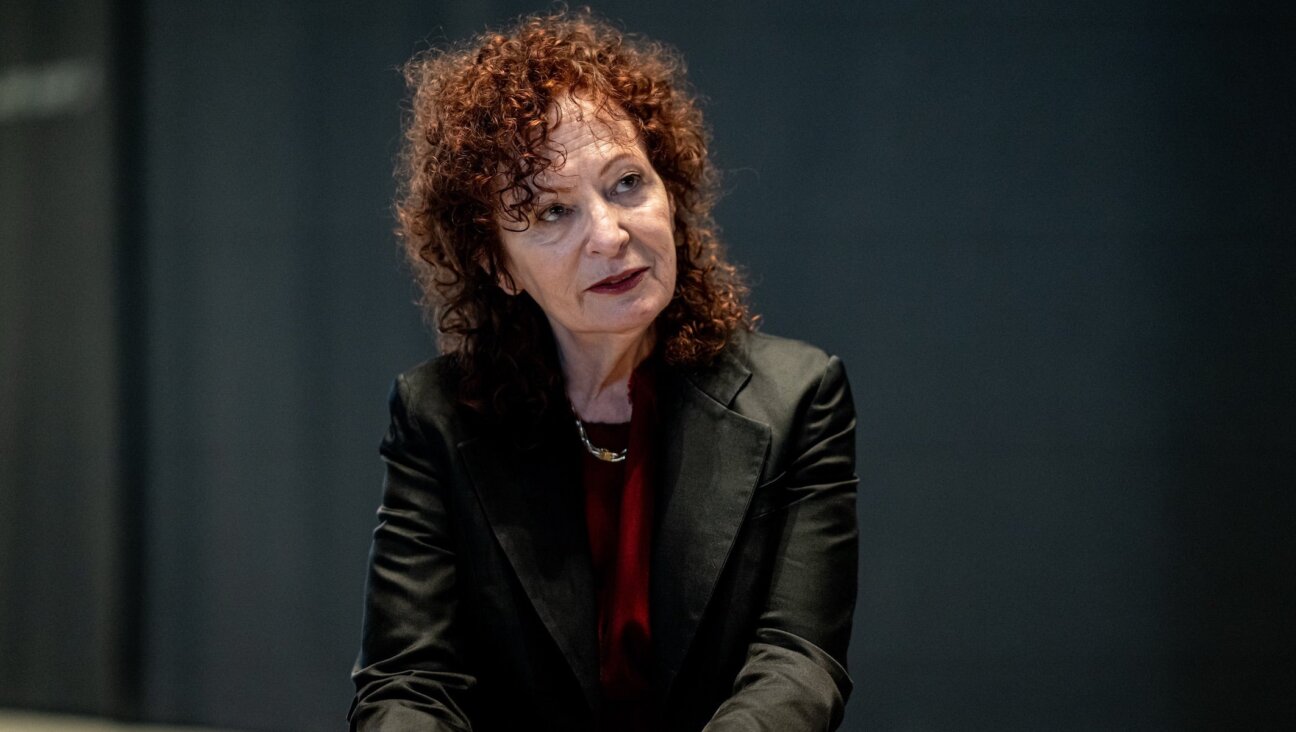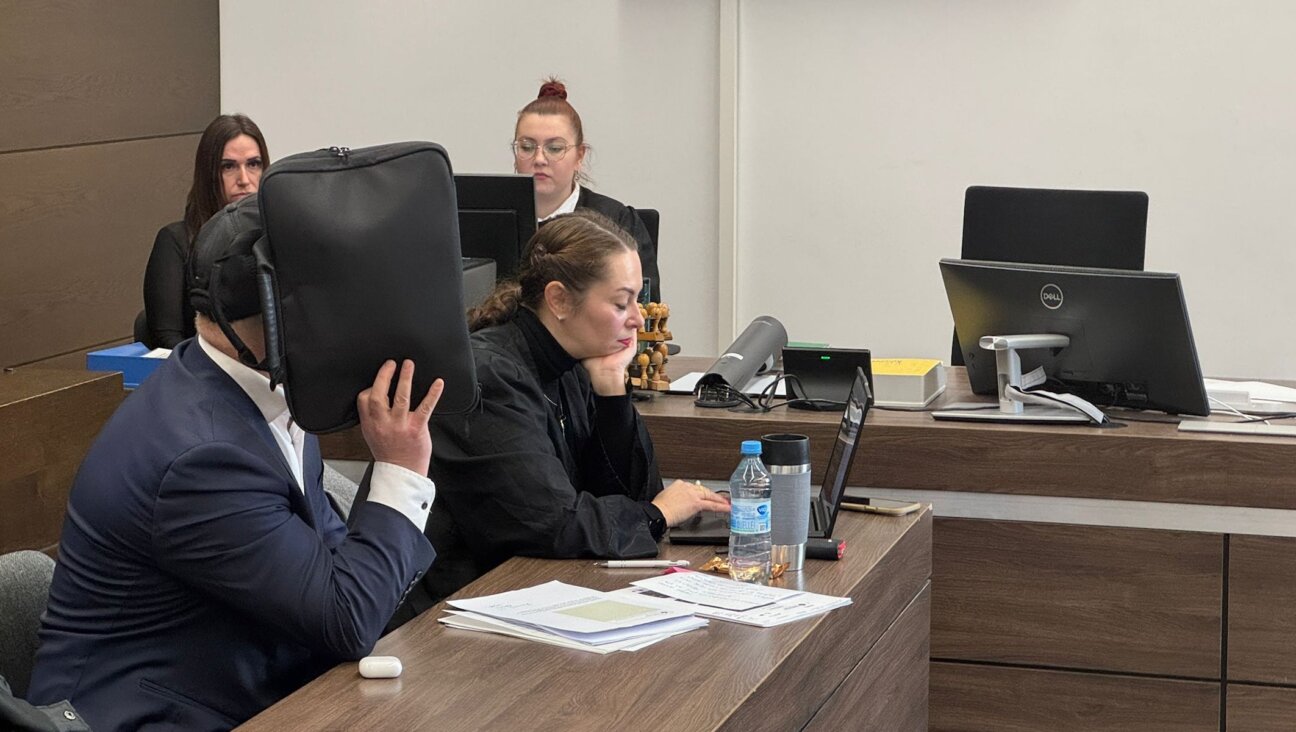Vote on Ethiopians Exposing Aid Rift
The decade-long battle over Ethiopian refugees is shifting to the United States, after the Israeli Cabinet’s unanimous vote Sunday approving the immigration of more than 18,000 languishing Ethiopians.
At issue is a little-noticed clause in the approved Cabinet resolution that is sparking debate among American Jewish groups over how much aid should be sent to the Ethiopians, who are known as the Falash Mura. The clause calls for an increase in humanitarian assistance to members of the community, made up of people who either converted to Christianity from Judaism under duress or are the descendants of such people.
Supporters of the Falash Mura are circulating an unofficial translation of the Cabinet decision that appears to point a finger at the Jewish Agency for Israel and two relief organizations based in the United States, the American Jewish Joint Distribution Committee and the North American Conference on Ethiopian Jewry. But an alternative unofficial translation stops short of mentioning the two American groups.
As of press time, the Israeli Foreign Ministry said it was unable to provide an official text of the resolution.
If the official version of the Cabinet decision calls on American Jewish groups to increase assistance, it would mark a sharp shift in policy for the Israeli government, which had previously asked relief organizations to stop supplying direct aid to the Falash Mura. It would likely increase pressure on JDC and the North American network of Jewish charitable federations to increase aid to the Falash Mura living in squalid conditions, mostly in temporary camps in the capital and a northern city, while they await transit.
The Jewish Agency and JDC receive more than $200 million annually from United Jewish Communities, the roof body of the North American network of Jewish charitable federations. In recent years, ostensibly following orders from Jerusalem, the federations and their overseas partners have provided only limited assistance to the Falash Mura, despite pleas from religious authorities in America and Israel.
Top rabbis in Israel and leaders of all three major Jewish religious streams in the United States say the Falash Mura should be treated as Jews, noting their adoption in recent years of an Orthodox Jewish lifestyle.
Nacoej has been operating two compounds in Ethiopia that provide schooling and meals to the community’s children, in addition to an embroidery program that employs 800 adults. The organization spent an estimated $1.4 million in Ethiopia last year.
The JDC now operates a medical program for the Falash Mura, but has rebuffed calls to launch a widespread food distribution program and other comprehensive initiatives to improve the population’s standard of living. Meanwhile, Jewish Agency officials previously insisted that they are only required to help people who have already been approved for immigration.
Nacoej officials say that about $6 million annually would be needed to allow the Falash Mura, most of whom are living as urban refugees in Addis Ababa and Gondar, to acquire the same standard of living as other Ethiopians while they wait to emigrate. Sources on all sides say the process could still take at least two years, with about 800 coming a month — more than double the present rate.
Reached at home Tuesday, the JDC’s executive vice president, Steven Schwager, declined to comment on the Cabinet decision, saying he had yet to see a copy of it. Officials at UJC also said it was too early to comment.
“UJC leadership will attend the Jewish Agency Board of Governors meeting in coming days to learn more about the nature of the Israeli Cabinet’s decision and how the government will be working with JAFI and its overseas partners to implement it,” said UJC spokesman Glenn Rosenkrantz. The Jewish Agency board is slated to meet in Jerusalem early next week.
An agency spokesman quoted the organization’s leader, Sallai Meridor, as saying the agency and “the Jewish people as a whole” were responsible for aiding the Falash Mura.
Officials at UJC and JDC have blamed Israel for their failure to provide more aid, often pointing to a letter sent several years ago by a top aide to then-prime minister Benjamin Netanyahu urging Jewish groups to close up shop in Ethiopia. They also have argued that providing significant humanitarian aid only would enable the Israeli government to continue its semi-official policy of delaying a ruling on the validity of the Falash Mura’s immigration claims, while attracting more needy Ethiopians with no Jewish claims.
Skeptics noted that Sunday’s Cabinet resolution stopped short of promising to bring all of the Falash Mura to Israel. Instead, it reportedly said that anyone able to establish a maternal Jewish link would be eligible to immigrate. Such a condition would actually represent a stricter standard than the Law of Return, which requires only a Jewish grandparent on either side. But supporters of the Falash Mura say a past survey suggests 85% will qualify and another 10% are married to people who will qualify.
Supporters of the Falash Mura charge that JDC and Jewish Agency officials have tried to persuade Israel not to bring the Ethiopians. While officials from both organizations deny those claims, they at times have insisted that the Falash Mura are not Jews, despite religious rulings to the contrary. That position echoes the line of several Israeli diplomats who have warned publicly that an official acknowledgement to the contrary would cause an unending stream of Ethiopians to clamor for admission to Israel.
The government passed its resolution Sunday at the urging of Interior Minister and Shas party leader Eliyahu Yishai. He was appointed to chair a committee charged with implementing the new resolution.
The Shas party’s spiritual leader, Rabbi Ovadiah Yosef, issued the original opinion 30 years ago recognizing the religious bona fides of the entire Ethiopian Jewish community. In recent years, Yosef, Israel’s former Sephardic chief rabbi, has spoken out on behalf of the Falash Mura. Last year he dispatched the chief rabbi of Tel Aviv on a secret mission to Ethiopia to verify claims that the community had returned to Judaism.
A source at the Cabinet meeting credited Prime Minister Sharon with pushing the resolution through, in the face of concerns raised by Housing and Construction Minister Natan Sharansky regarding the financing of the operation and whether Israel could ensure that additional numbers of Ethiopians were not encouraged to apply for immigration.
In a statement e-mailed to the Forward, a spokesman for Sharansky said he “voted with the majority to approve the proposal after it was decided to directly address these problems and after a special governmental committee was established to this end.”
Since the resolution passed, Deputy Immigration Absorption Minister Yuli Edelstein has reportedly criticized the measure. Critics warn that the Falash Mura immigration could cost between $1 billion and $2 billion. Falash Mura supporters countered that such estimates were grossly exaggerated.
















